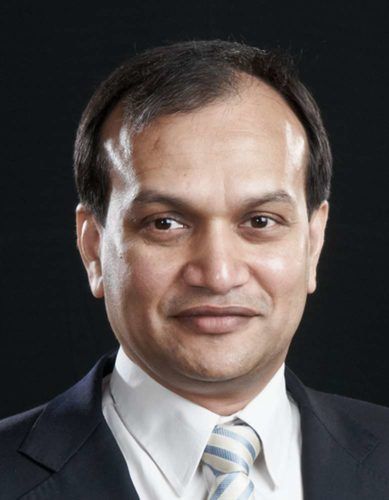Interoperability in Financial Services is the Future of International Remittances
Published by Gbaf News
Posted on January 15, 2019
7 min readLast updated: January 21, 2026

Published by Gbaf News
Posted on January 15, 2019
7 min readLast updated: January 21, 2026

Contributed by: Ambar Sur, Founder and CEO, TerraPay
Mobile payments have revolutionized emerging markets; allowing mobile phone users easy access to bank accounts and facilities associated with banking. They also have a direct impact on the economy of a country and can lead to an increase in GDP when transactions became painless, efficient and cashless. Ultimately, this encourages entrepreneurship and helps businesses grow quickly. However, when it comes to interoperability, mobile payments still have a long way to go. Take for instance, mobile money networks. Currently, they cannot ‘talk’ to one another and customers on one network cannot pay people using another network.

Ambar Sur
Interoperability in mobile networks already exists. This allows a user to send text messages and make calls to friends on other service provider/network without worrying about the network they belong to. The originating network even pays the terminating network a service fee to “accept” the call. This is exactly how mobile payments should work. In this regard, from the customer’s perspective, mobile payments become as seamless as SMS or call. To achieve this, interoperability in financial services comes in; the ability to send money across disparate networks (for a small fee of course) and ensuring the least number of interchanges / handshakes in between.
Now, interoperability in itself is a challenging task and collaboration is the key to its achievement. Not only do we need multiple stakeholders to coordinate with each other but we require legal frameworks, business models, enterprising solutions and policies at par with international standards for it to ever function as a whole.
Interoperability brings tremendous benefits to the table. It creates a network effect which helps in the growth of the user base which in turn helps boost the economy. Once digital money becomes easy to remit, users automatically flock towards that network. And if all banks and all mobile networks are interconnected, account to account transactions (A2A) will no doubt become affordable and effortless. Interoperability in mobile money ecosystem can bring about cost efficiencies and allow for a better risk management.
Now let’s think on an even larger scale.
“ avenue of digital cash has no limit. ”
If everyone chose mobile money over cash to transact within the country, the government itself would benefit as they will not have to manage cash so much. Interoperability would have lowered the cash management cost.
Interoperable payment solutions benefit individuals as well. Here is an example. John prefers to shop online for stuff because it means saving the hassle of going to a mall, but some vendors prefer PayPal only and so the options suddenly become limited, as John prefers to use his card. Looking at this from the lens of mobile payments, he happens to be an account holder in only one of the three mobile payment networks in his country. If he shops at a local store online that supports only one mobile payment network that isn’t his, he’s stuck!
It makes no sense that a single vendor should support and maintain accounts with three different mobile payment networks (in this digital age no less) only to accommodate everyone on different networks to pay online. That is as bad as thinking that a person should hold Gmail, Hotmail and Yahoo email accounts to send an email to each email client.
When interoperability in mobile payments comes into effect, it guarantees an increase in sales because this avenue of digital cash has no limit. Also, let’s not forget how much the network would earn on the interchange fee and save on sending. In fact, that is a two-fold benefit while the added third benefit is a given when the receiving network gets funded with money.
Now of course, taking a step back again, we need the governments to understand how their approach is affecting the market and the regulatory bodies are struggling to tackle the right balance between the key market players and the customer’s interest. As mentioned before, interoperability is a challenging feat and collaboration is the only key.
We know that customers use network operators to transact, so why not create a robust, interoperable system that can accelerate financial inclusion and benefit all the participants in the mobile money network?
Let’s take a moment and identify these participants –
Providers would be the financial institutions such as the banks, processors and network service provides. Beneficiaries would be the customers, dealers, governments and anyone else who deems it easy to accept and make digital payments. These market players will not be able to gain the kind of benefit interoperable ecosystem offers if we continue with the closed-loop system we have running currently.
Interoperability in International Mobile Money Remittances
International remittances through mobile payment systems face bigger challenges when it comes to interoperability. Here, there is a need for Anti Money Laundering (AML) compliance and the need to establish a Remittance Service Provider (RSP) to handle cross border payments and complying with relevant regulatory requirements.
East Africa is currently the leader in international remittances through mobile payments. While the service is limited to only eight out of twenty countries, it allows international remittances straight to mobile money accounts when using money transfer services. Other regions where international remittances through mobile money are making headway are South Asia and Asia Pacific.
What is more interesting is that among the countries where there is high penetration of Mobile money, there are very few countries where money can be transferred between different mobile money services within a country.
Here is a parting thought…
Imagine the size & scope of the untapped potential on offer if there was interoperability between mobile money networks within each country.
About the Author:
Ambar Sur is the Founder and CEO of TerraPay. TerraPay is a B2B company incubated by Mahindra Comviva, a global leader in delivering mobile financial solutions and is part of the USD 19 billion Mahindra Group. Ambar combines his deep knowledge of technology with an appreciation of market and business drivers – skills that have enabled him to lead teams that develop winning propositions, delivered in a customer-focused manner. With a strong strategic vision and a keen focus on processes, people, and fault-free product delivery, Ambar has been able to win customer loyalty with leading operators, globally. He has handled various roles within Mahindra Comviva, including Chief Marketing Officer, Director- EMEA and Vice President – Airtel market unit. Ambar began his 19 year career in Washington DC as a project manager with LCC, a pioneer in wireless voice and data services for the telecom industry, where he set up various networks around the world. Having gained experience of the wireless world, Ambar moved to India to work with BPL Mobile, where he oversaw Network Performance & RF Planning for the company. He later moved to BPL Innovision to establish OyeIndia, the group’s web technology company.
In 2001, Ambar co-founded CellCloud Technologies, where he was a key driver of business growth, building sales of the company’s innovative prepaid solution in India, and helping ensure the company became profitable within a short period. CellCloud merged with Mahindra Comviva in 2002.
Ambar has a BS in Electrical Engineering from Virginia Tech in the USA and an MS in Telecom from Brooklyn Polytechnic, USA.
*Previously published in Issue 9
Explore more articles in the Finance category
